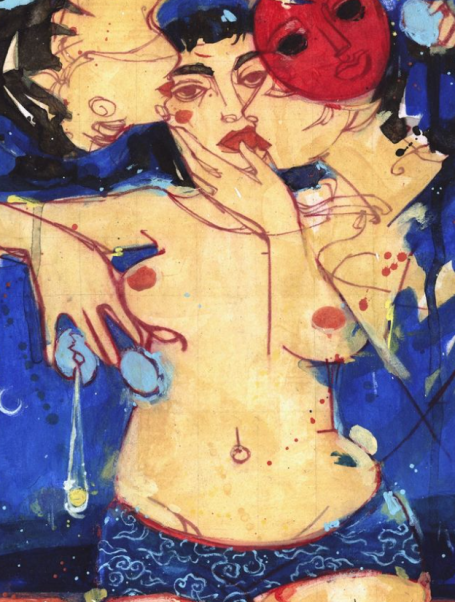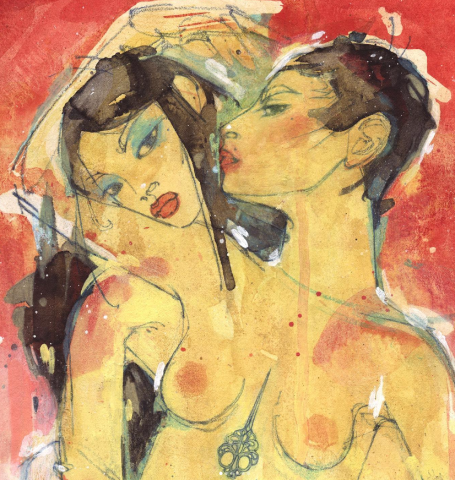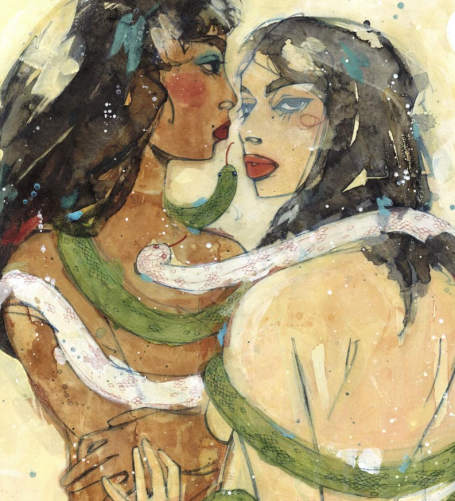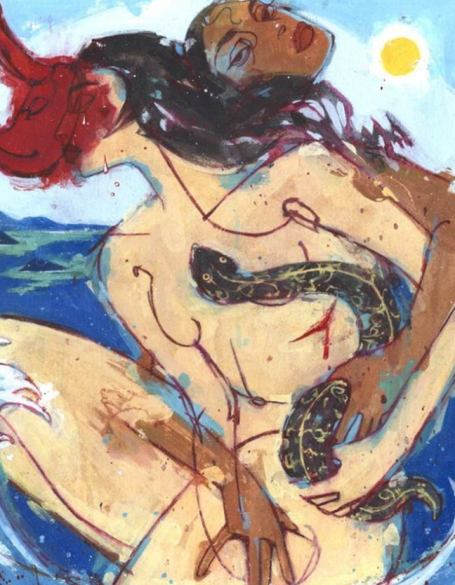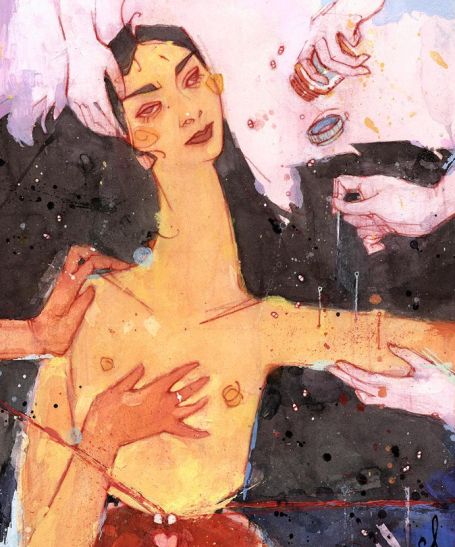
#Instagram Photo
22
SEP
2024
Cristi López: Empowering Mental Health Awareness Through Art, Exploring OCD, Sexuality, and Queerness Experiences.
Florida-based artist Cristi López uses her creative work to explore and express her experiences with Obsessive-Compulsive Disorder and sexuality. Through her art, she fosters a space for self-acceptance and validates the stories of those living with mental illness.
Cristi López (born in 1993) is a Florida-based artist and mental health advocate. Her work focuses on the need to recognize and validate the experiences of those living with mental illness, promoting the idea that every story deserves to be seen and heard without judgment. Through her art, López seeks to create a space where individuals can confront their internal struggles and find comfort in the representation of their realities.
López has shared her own experience with Obsessive-Compulsive Disorder (OCD), which took her 25 years to identify. During that time, she assumed that the critical and doubt-filled voice inhabiting her mind was part of her identity. This voice often interrupted her thoughts and emotions, generating a cycle of self-examination that left her paralyzed by the reality of her experiences. From simple questions like “What’s your favorite color?”, her responses were accompanied by a constant internal skepticism, leading her to question her own truth.
The narrator describes how OCD infiltrated every aspect of her life, especially in relation to her sexual identity. Confusion about her orientation—whether heterosexual, homosexual, or bisexual—intensified as OCD fed her doubts. She wasn’t afraid of being gay; she was afraid of lying about it. This internal conflict became a significant obstacle to forming healthy relationships, as her doubts kept her trapped in a cycle of anxiety and self-blame.
OCD is characterized by a cycle of obsessions, anxiety, and compulsions that become increasingly extreme. As the narrator tried to find clarity about her identity, she became more immersed in confusion. She believed that if she could discover a “key” that confirmed her orientation, she could free herself from the anguish of her OCD. However, she soon realized there was no simple answer; the search for certainty turned into a labyrinth.
In this context of struggle, Cristi López uses her art as a way to confront discomfort and uncertainty. The act of creating became a means for her to breathe and reconnect with her essence. Drawing and painting offered her a refuge where she didn’t have to justify her feelings; she could simply be. This act of creation became not only a means of expression but also a space for healing and self-acceptance.
López feels compelled to represent dreamy landscapes that reflect her attraction to women. Although her anxious mind often leads her to question her desires, artistic creation allows her to explore her identity in a free and authentic way. Through her art, she has found the ability to accept her feelings and recognize that the same part of her that can let go of her need to understand her work can also apply to her personal life.
Her work is a testament to the power of art as a healing tool. The narrator acknowledges that the creative process is complicated and not always easy, especially during moments of mental health crises. However, she has learned that art allows her to express her identity without the constraints of internal judgment or social expectations. This experience of creation has not only helped her navigate her struggles with OCD but has also given her the freedom to explore and accept her sexuality.
Cristi López, through her art and activism, emphasizes the importance of giving visibility to the experiences of those facing mental illness. By sharing her story, she seeks to normalize the struggles that many people face in silence, opening a space for others to feel seen and heard as well. Her work is a reminder that, although internal struggle can be overwhelming, art can offer a pathway to healing and self-acceptance.
Gorilaspain Independent Fashion and culture Magazine - Independent fashion Magazine. Independent Music Magazine. Independent Art magazine. Independent culture Magazine
Necesitamos su consentimiento para cargar las traducciones
Utilizamos un servicio de terceros para traducir el contenido del sitio web que puede recopilar datos sobre su actividad. Por favor revise los detalles en la política de privacidad y acepte el servicio para ver las traducciones.
